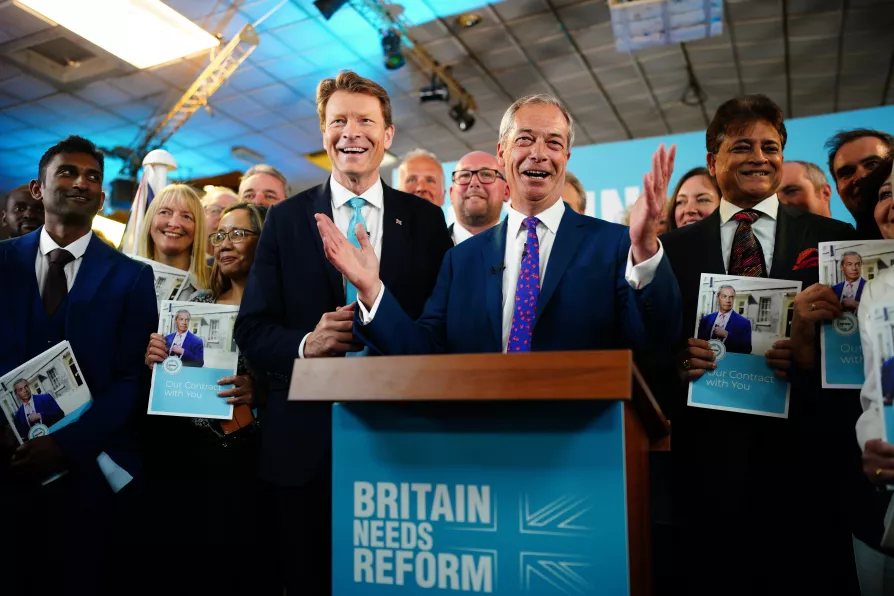Reform targets Labour ‘red wall’ voters

 Reform UK chairman Richard Tice (left) and party leader Nigel Farage launch 'Our Contract with You' in Merthyr Tydfil while on the General Election campaign trail, June 17, 2024
Reform UK chairman Richard Tice (left) and party leader Nigel Farage launch 'Our Contract with You' in Merthyr Tydfil while on the General Election campaign trail, June 17, 2024
REFORM started targeting Labour “red wall” voters today as the hard-right party launched its reactionary election manifesto in Wales.
The party’s owner and leader Nigel Farage went to Merthyr Tydfil, once represented by Labour pioneer Keir Hardie, to tell voters that “Labour is not very different to the Conservatives … it is just more incompetent.”
And he restated his aim of being the main challenger to Labour for government by 2029, likely date of the next general election following July 4.
Similar stories

JOE GILL looks at research on the reasons people voted as they did last week and concludes Labour is finished unless it ditches Starmer and changes course

While Starmer courts BlackRock and backs genocide, leading to despair and historically low voter turnout, the vultures of the new populist right circle Britain’s crumbling institutions, writes CLAUDIA WEBBE

From boozy banker renegade to man-of-the-people populist, Farage’s evolution continues — if he can win constituencies like the Welsh mining areas, the left will need new and better answers, writes ANDREW MURRAY

Farage's party is a political machine deeply tied to the interests of US big business, writes PHIL KATZ in the first of a series of features on this growing force in British politics










